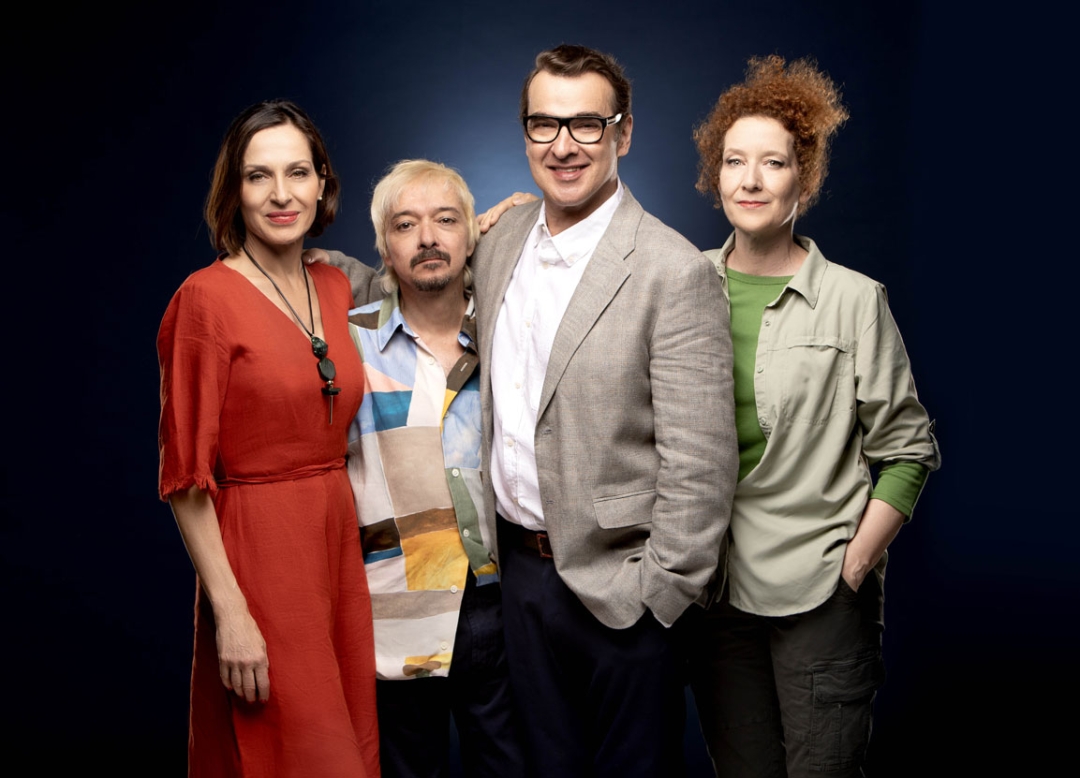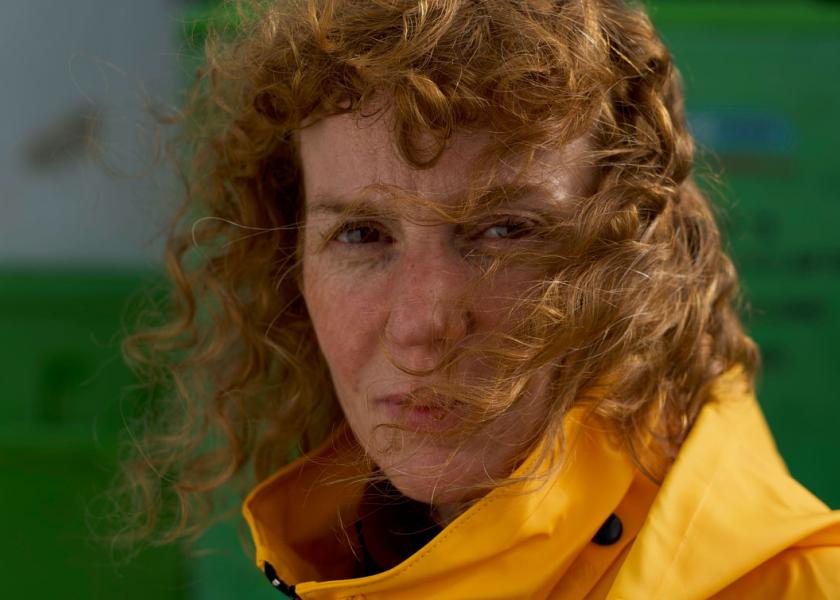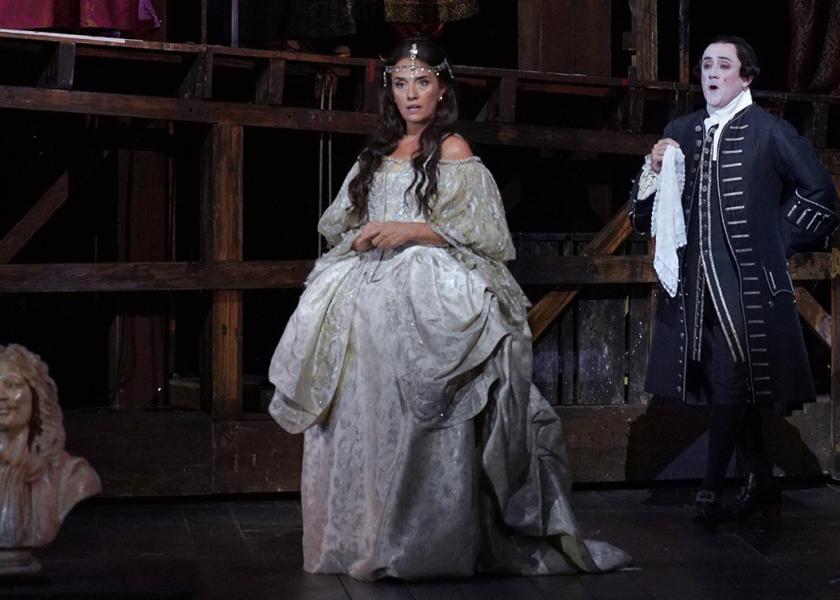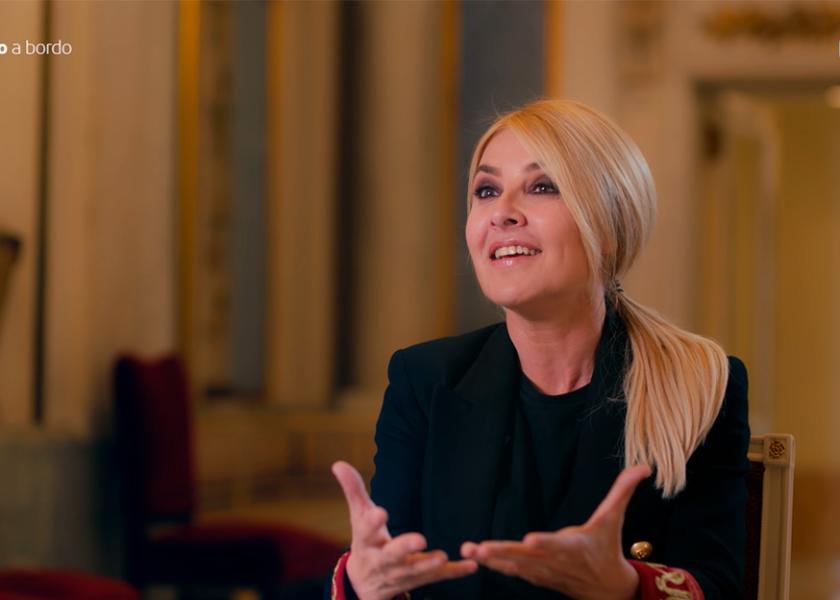Natalia Millán
The first time

Singing, dancing, acting... Natalia Millán has spent her whole life onstage showing versatility —the result of a handcrafted understanding of talent— which has become her best ally. Now she wants to make us laugh non-stop with ‘Conspiranoia’ and, despite her substantial experience, she confesses that nerves and fear are still there, intact before the curtains open. As if for the first time.
Natalia Millán (Madrid, 1969) stepped onstage for the first time in 1982, at the tender age of 13. “My heart was beating so fast I thought it would burst,” she confesses today reminiscing about that première, none other than My Fair Lady. That little girl couldn’t imagine the impact musicals would have on her, nor the impact she would have on musicals. For several decades, Natalia has made us laugh and cry, but above all she has made us dance, even while sitting in our seats, by starring in the best musicals that have graced Spanish stages. “I’m fascinated by many, but I’ve been lucky and honoured to have taken part in three wonderful musicals: Cabaret, Chicago and Billy Elliot,” she assures us when asked about her favourites. Her current role isn’t in a musical, but in a comedy show: Conspiranoia —until the 12th of January at Teatro Alcázar in Madrid—. “They say that making people laugh is the hardest thing to do, but I find everything equally difficult,” she confesses laughing. Natalia spoke to us on her birthday, gifting us a few minutes of her time.
Since your debut in 1982, with My Fair Lady, you’ve acted in all sorts of genres onstage. Would you say that versatility has been your biggest ally?
Yes, it’s been a wonderful ally. When I started out there were only a few of us who had trained in several disciplines and that made me unique. Now it’s different, new generations of actors receive much more multidisciplinary training; in fact, that’s where the rise of musicals in Spain comes from.
After years in theatres, has the way you experience those moments before stepping onstage changed?
When the curtain rose at my first première I thought I’d die of a heart attack. I still have stage fright today and I try to get into a calm and controlled mindset before going out there. I always do relaxation and breathing exercises. Lately I also meditate and it’s working really well for me. Nerves can’t be erased, but you have to try to not turn them into your enemy, but rather into an extra source of energy to play your role. Actors and actresses give their all onstage and that responsibility, for everything to go well, can make your life difficult. When you have to face your fear onstage, you become afraid of fear itself, which is even more terrifying. You have to experience fear in a way that doesn’t make you freeze.
“The endorphin rush that occurs when you spend an hour and a half laughing is very good for you and taking those good vibes with you makes you feel good”
Now you’re presenting a comedy, Conspiranoia. How important is laughter in such a seemingly tense society as our own?
A sense of humour is essential, it’s what saves us on many occasions. Life is wonderful, but it has its ups and downs, and looking at things from a fun perspective helps us to bear many situations. Comedy is always welcome in theatre, but since the pandemic it’s in even greater demand. The endorphin rush that occurs when you spend an hour and a half laughing is very good for you and taking those good vibes with you makes you feel good.
What is Conspiranoia about, where you play a flat-earther?
The belief in flat Earth is just the starting point, the play’s really about tolerance and respect for others. It’s becoming increasingly difficult for us to hear beliefs that are different to our own and, when we do hear different opinions, we often get defensive or even aggressive. We should never lose respect for another because they think differently. I always encourage people to listen because our minds expand through other points of view, even if they are completely opposite to your own. By the way, the belief in flat Earth is cured by taking a long flight (laughs).

Natalia Millán alongside her co-stars (and friends) from ‘Conspiranoia’: Clara Sanchís, Luis Merlo and Juanan Lumbreras. © Courtesy of El papel es tuyo
Friendship is another core theme of the play, in a line-up you share with friends. What is it like to work alongside people you love?
Wonderful. Luis Merlo and Clara Sanchís have been friends of mine for many years; I met Juanan more recently, but he’s seamlessly become part of the group. We’re all dying for it to be time to go to the theatre. Sometimes, we even steal some minutes from the show; the stage manager catches us talking before going onstage and we ask her for a bit more time. It’s a lovely feeling because we admire each other and share a love for what we do, as well as memories and passion. When you’re lucky enough to go to work joyfully, it’s like winning the lottery.
Musicals are having a moment in Spain and you, the indisputable queen of the genre, have been one of the people to make it so. How have you experienced it?
Thank you for calling me a “queen”. That’s so lovely! I experience it with joy. I started doing musicals when I was underage and did several in a row, but then they stopped doing them in Spain. It doesn’t make any sense that they disappeared from billboards for so many years because our country has a very musical temperament. They suddenly came back, and I’ve done my part, and that makes me feel proud.
“My advice is that for talent to bloom, it needs to be put to work every day. Talent is like craftwork, there’s nothing magical about it”
There are many musicals from outside of Spain that are played onstage; do you miss more performances rooted in our own culture?
Yes. We have all the ingredients to immerse ourselves in our own cultural heritage. We also have great creators, composers, directors, producers... There’s a lot of talent that could lead to great works. In the United States, there are musicals inspired by historical figures, like Hamilton; imagine if we did something similar. And if we take notice of female characters, even better. Producers bring musicals that have already been a success in their countries of origin, and I understand it because they are big investments, but I encourage them to be brave.
What is talent to you and what advice would you give a young actress to develop it?
I wouldn’t know how to define talent, but I do know we’re all talented; we just have to look inside ourselves to find it. My advice is that for talent to bloom, it needs to be put to work every day. Talent is like craftwork, there’s nothing magical about it. I’ve always been very hardworking, so I speak from experience.


